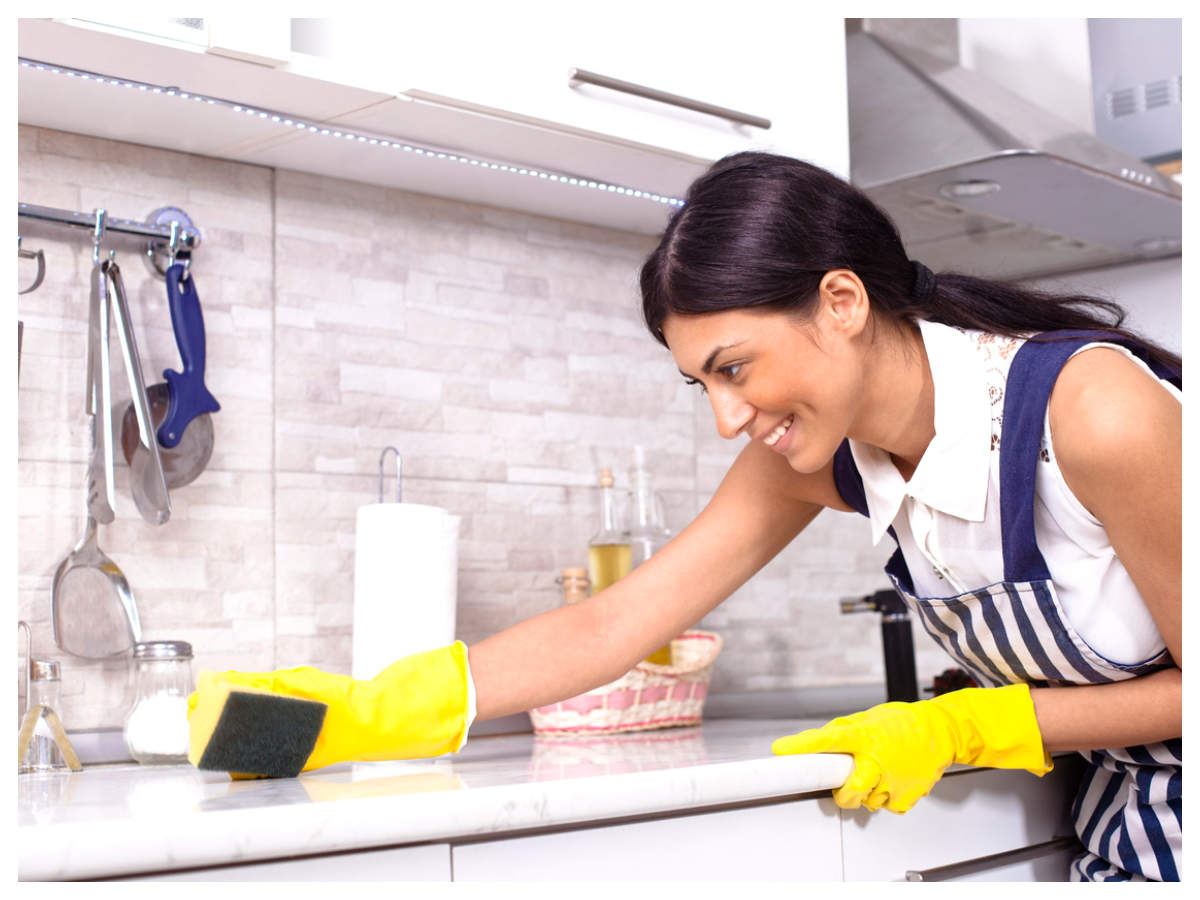
The genesis of this article lies in two disparate but equally disturbing pieces of news that I read about these past few weeks. The first is the Bois Locker Room incident – we all know what happened there, so I see no reason to rehash it on this forum. The second is far less dramatic, but no less shocking.
According to the Organisation for Economic Cooperation and Development (OECD), Indian women do the most unpaid care and domestic work of any country globally – except for Kazakhstan. The average Indian woman spends 352 minutes per day on domestic work, which is 577% more than the average Indian man, who spends just 52 minutes. The lockdown has only exacerbated an already appalling situation, with women under more pressure than ever before to ‘take care’ of their families.
Both these stories point to the same basic problem, albeit in very different ways: India has amongst the most rigid and regressive socio-cultural definitions of gender roles in the world. And while the easiest thing to do is denounce gender stereotyping and bemoan the patriarchy that has defined our nation for centuries, the truth is that the blame lies far closer to home. Sexism and stereotyping aren’t just functions of socio-culture, they’re also functions of popular culture, which advertising plays a huge role in shaping.
Last year, I wrote about what I call ‘wokevertising’, award-friendly work that focuses singularly on addressing the many social injustices that plague our world. Racism, body shaming, gun violence, domestic violence, gender inequality, LGBTQ rights – whatever social issue you can come up with, chances are there’s already a Cannes Lion-winning campaign that’s been done on it. But, here’s the thing. Award-winning advertising rarely enters the mainstream, especially here in India. Which means it never gets to truly influence the ebb and flow of popular culture.
What does, however, is the bread-and-butter, mainstream ‘brand work’. And therein lies the problem. This is the work behind which clients invest huge media monies. The work that will drive sales and move the business. The ‘iconic’ work we’ve all grown up with. Unfortunately, these are also the campaigns that add to the Indian narrative of how women are viewed. We all remember them.
The one in which a woman’s self-worth is defined by the quality of the meal she serves her family (extra points if her stoic father-in-law or disapproving mother-in-law nod in acknowledgement!).
The one in which a woman’s performance as a wife, homemaker and overall human being is measured by the whiteness of her husband’s shirt.
The one in which a woman is celebrated for her ability to juggle the many responsibilities of everyday life – after all, that’s what makes her a superwoman!
The one in which a woman can’t help but seduce her own brother-in law (but only because he’s wearing that supremely irresistible deodorant).
And if we’re really talking about iconic, how about that one in which a woman can’t get a job or a husband because of the colour of her skin?
And lest we think this gender narrative is getting too one-sided, what about the one in which the heroic, vest-clad alpha male beats up a bunch of eve-teasers/bank robbers, only to be rewarded by the damsel in distress draping herself over his broad shoulders in gratitude? Or the one in which an everyday guy (because, hey, relatability) has to fend off legions of supermodelesque women throwing themselves at him because of that deodorant he unknowingly sprayed on (poor guy).
And my personal favorite: The one in which a husband forgets the name of his spouse, or better still, hands his phone to his friend while he bends down to tie his shoelaces as his (presumably clueless) nag of a wife drones on and on.
We’ve all watched these, we’ve all smiled, and we’ve all laughed because, after all, ‘men will be men’.
The truth, as hard as it may be for us to face, is that advertising has been built on the back of creating insecurity and reinforcing gender and cultural stereotypes. So, while it feels good to condemn sexism and patriarchy in all its forms in our personal capacities as progressive, forward-thinking individuals, it doesn’t really count for much when we reinforce the same regressive stereotypes in our professional capacities as marketers.
Of course, one could argue that advertising needs to reflect consumer behaviour. But I’d like to aspire to create advertising that can drive new, more progressive, less stereotyped consumer behaviour altogether. Ultimately, the choice is ours.
Regardless of where your personal opinion may lie on the matter, it’s time to take a good, hard, collective look at ourselves in the mirror. We may not like what we see.
According to the Organisation for Economic Cooperation and Development (OECD), Indian women do the most unpaid care and domestic work of any country globally – except for Kazakhstan. The average Indian woman spends 352 minutes per day on domestic work, which is 577% more than the average Indian man, who spends just 52 minutes. The lockdown has only exacerbated an already appalling situation, with women under more pressure than ever before to ‘take care’ of their families.
Both these stories point to the same basic problem, albeit in very different ways: India has amongst the most rigid and regressive socio-cultural definitions of gender roles in the world. And while the easiest thing to do is denounce gender stereotyping and bemoan the patriarchy that has defined our nation for centuries, the truth is that the blame lies far closer to home. Sexism and stereotyping aren’t just functions of socio-culture, they’re also functions of popular culture, which advertising plays a huge role in shaping.
Last year, I wrote about what I call ‘wokevertising’, award-friendly work that focuses singularly on addressing the many social injustices that plague our world. Racism, body shaming, gun violence, domestic violence, gender inequality, LGBTQ rights – whatever social issue you can come up with, chances are there’s already a Cannes Lion-winning campaign that’s been done on it. But, here’s the thing. Award-winning advertising rarely enters the mainstream, especially here in India. Which means it never gets to truly influence the ebb and flow of popular culture.
What does, however, is the bread-and-butter, mainstream ‘brand work’. And therein lies the problem. This is the work behind which clients invest huge media monies. The work that will drive sales and move the business. The ‘iconic’ work we’ve all grown up with. Unfortunately, these are also the campaigns that add to the Indian narrative of how women are viewed. We all remember them.
The one in which a woman’s self-worth is defined by the quality of the meal she serves her family (extra points if her stoic father-in-law or disapproving mother-in-law nod in acknowledgement!).
The one in which a woman’s performance as a wife, homemaker and overall human being is measured by the whiteness of her husband’s shirt.
The one in which a woman is celebrated for her ability to juggle the many responsibilities of everyday life – after all, that’s what makes her a superwoman!
The one in which a woman can’t help but seduce her own brother-in law (but only because he’s wearing that supremely irresistible deodorant).
And if we’re really talking about iconic, how about that one in which a woman can’t get a job or a husband because of the colour of her skin?
And lest we think this gender narrative is getting too one-sided, what about the one in which the heroic, vest-clad alpha male beats up a bunch of eve-teasers/bank robbers, only to be rewarded by the damsel in distress draping herself over his broad shoulders in gratitude? Or the one in which an everyday guy (because, hey, relatability) has to fend off legions of supermodelesque women throwing themselves at him because of that deodorant he unknowingly sprayed on (poor guy).
And my personal favorite: The one in which a husband forgets the name of his spouse, or better still, hands his phone to his friend while he bends down to tie his shoelaces as his (presumably clueless) nag of a wife drones on and on.
We’ve all watched these, we’ve all smiled, and we’ve all laughed because, after all, ‘men will be men’.
The truth, as hard as it may be for us to face, is that advertising has been built on the back of creating insecurity and reinforcing gender and cultural stereotypes. So, while it feels good to condemn sexism and patriarchy in all its forms in our personal capacities as progressive, forward-thinking individuals, it doesn’t really count for much when we reinforce the same regressive stereotypes in our professional capacities as marketers.
Of course, one could argue that advertising needs to reflect consumer behaviour. But I’d like to aspire to create advertising that can drive new, more progressive, less stereotyped consumer behaviour altogether. Ultimately, the choice is ours.
Regardless of where your personal opinion may lie on the matter, it’s time to take a good, hard, collective look at ourselves in the mirror. We may not like what we see.
Quick Links
Kerala Coronavirus Helpline NumberHaryana Coronavirus Helpline NumberUP Coronavirus Helpline NumberBareilly NewsBhopal NewsCoronavirus in DelhiCoronavirus in HyderabadCoronavirus in IndiaCoronavirus symptomsCoronavirusRajasthan Coronavirus Helpline NumberAditya ThackerayShiv SenaFire in MumbaiAP Coronavirus Helpline NumberArvind KejriwalJammu Kashmir Coronavirus Helpline NumberSrinagar encounter
Get the app








